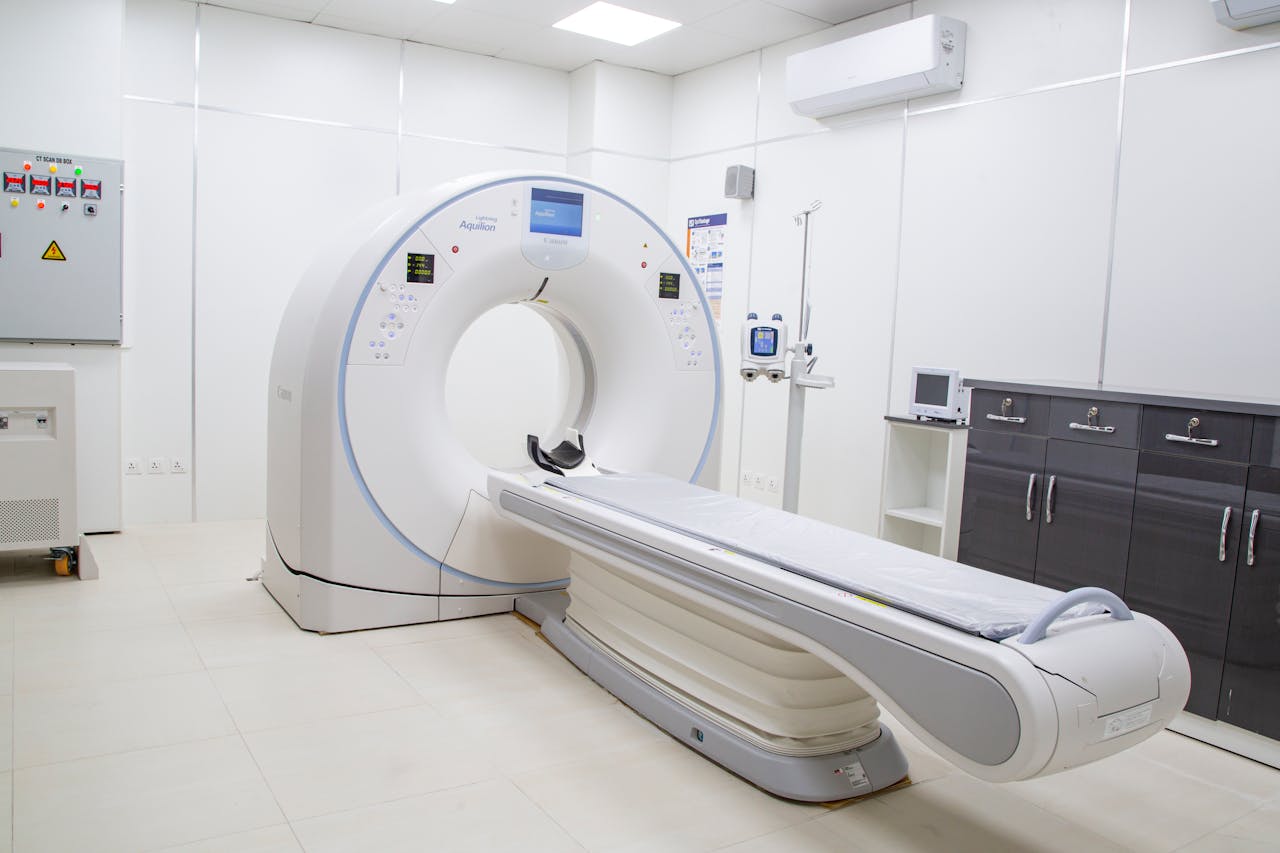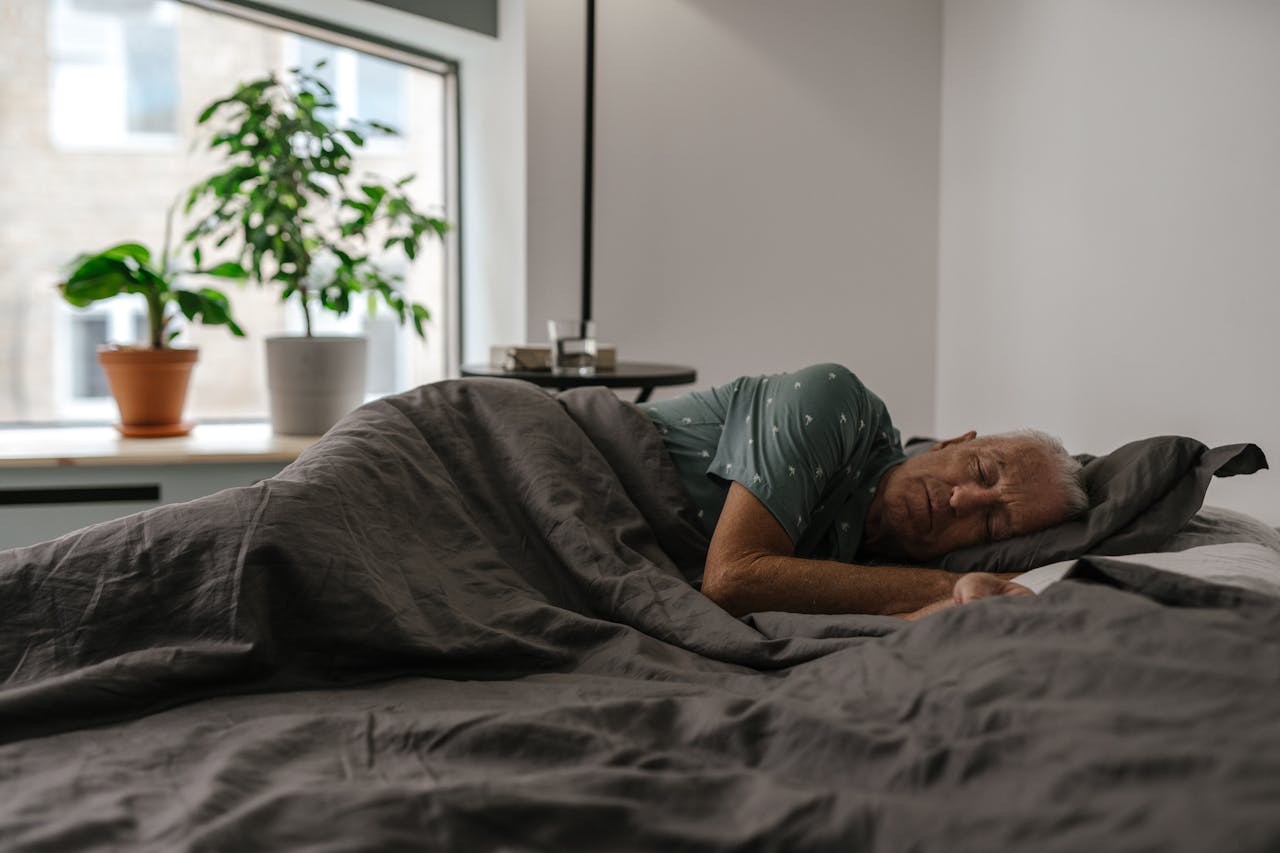What Is Dementia?
Dementia is a catch-all term to describe a variety of neurological, degenerative diseases that affect cognition. When we think of it, however, we're often thinking specifically of Alzheimer's. But what are dementia's signs and symptoms? And can it be prevented?

Diagnosing Dementia
Diagnosing dementia is done through a combination of cognitive tests; imaging like CT scans or an MRI; and blood tests to rule out other causes.
 contact me +923323219715, Pexels
contact me +923323219715, Pexels
Causes Of Dementia: Proteins
Many causes of dementia are due to protein misfolding, which can cause brain damage and lead to the symptoms of dementia. This is most prevalent in Alzheimer's disease, where the misfolding ends up causing inflammation in the brain that affects cognition.
Causes Of Dementia: Vascular Dementia
Although protein misfolding is the culprit behind a great amount of dementia cases, there is also vascular dementia. This results from improper blood flow to the brain, usually from a stroke.
Causes of Dementia: Other Issues
More rarely, dementia can also be caused by things like Parkinson's disease, Dementia with Lewy bodies, syphilis, and HIV. There are also cases of "mixed dementia," generally with Alzheimer's and vascular dementia being combined factors.
Causes Of Dementia: Lewy Bodies
Lewy bodies affect people with both Parkinson's and Dementia with Lewy Bodies. In these cases, patients' brains display abnormal protein clumps that disrupt cognition.
Causes Of Dementia: Frontotemporal
Frontotemporal dementia affects the frontal and temporal lobes of the brain, and comes from other protein mutation issues. It generally begins early, usually hitting people first anywhere between the ages of 45 and 65.
 Centre for Ageing Better, Pexels
Centre for Ageing Better, Pexels
The Numbers
Alzheimer's disease counts for over half the cases of dementia around the world, sitting at about 60-70% of cases. Vascular dementia makes up 20%, with the rest of the causes coming in after.
Behavioral Symptoms Of Dementia
Because there are many kinds of dementia, symptoms and their timelines can vary. Nonetheless, cognitive decline can often make patients restless, agitated, or confused.
In addition to agitation, dementia can often cause patients to lose certain inhibitions, leading to inappropriate behavior or physical or verbal aggression.
Psychological Symptoms Of Dementia
Dementia also has a psychological component, and patients sometimes report depression, anxiety, delusions, and visual hallucinations.
Affected Cognitive Areas
Patients with dementia often have issues with their memory, language, attention, and problem solving. They can also have lowered spatial functioning and perception.
Stages Of Dementia
In general, dementia progresses slowly, and medical professionals tend to categorize it in four stages: Pre-dementia, Early, Middle, and Late.
Pre-Dementia
Patients with pre-dementia sometimes show a peculiar symptom years or even a decade before the onset of their dementia: the loss of a sense of smell.
Researchers are still theorizing about why this happens. Some believe that the "olfactory epithelium,"—tissue inside our nasal cavities—becomes exposed, potentially letting toxins into the brain.
Living With Pre-Dementia
The symptoms of pre-dementia are often subtle, and many times people only notice them in retrospect. Pre-dementia patients are still able to go about their daily lives, though they may have trouble with memory and with choosing their words.
Planning In The Pre-Dementia Stages
If someone does find out they are in the pre-dementia stage, doctors encourage them to use this time to plan out their affairs and future care, ensuring that all their desires will be met when the time comes.
Early Stage Dementia
In the "Early" dementia stage, the cognitive impairment begins being obvious to others, and interfering with daily life. Patients may have difficulty performing more complex household chores, or remembering to take medications.
Different Dementias, Different Symptoms
At this stage, many people with dementia can be lost when in a new place, and there are changes in personality as well. However, for people living with Lewy bodies or frontotemporal dementia, these personality changes are often the very first symptoms.
Middle Stage Dementia
Once the patient hits the middle stage of dementia, many of the symptoms stay the same, but worsen in degree. They begin to be unable to solve simpler problems, and their judgment in social situations worens.
Caretaking Needed
Where people with pre-dementia or early stage dementia can usually preserve some independence, people with middle stage dementia require caretaking, and are generally unable to function outside of the familiarity of their house.
In addition to these symptoms, middle-stage dementia patients often begin to forget their own condition.
Late Stage Dementia
In late stage dementia, people become almost completely dependent on caretaking, needing round-the-clock care.
A Danger To Themselves
Without 24-hour caretaking, dementia patients can easily wander off and fall. They also will have difficulty recognizing common dangers, such as a hot stove, and will be unable to remember to take medication or use the toilet.
Sleep Symptoms
Late stage dementia is also marked by difficulty sleeping or a change in sleeping habits, trouble recognizing once-familiar faces, and issues getting out of bed. Nonetheless, in Dementia with Lewy Bodies, sleep issues can be the first sign of a problem.
Trouble With Mobility
At this point, many experience mobility issues, particularly those with Alzheimer's disease, and may need help walking.
Eating And Dementia
Cognitive decline in dementia also affects a person's ability to properly eat and swallow food, which can produce choking hazards. In the late stage, many patients have their food pureed.
A Moment Of Clarity
Incredibly, for all these symptoms, people with late stage dementia can also experience a moment of total clarity right before dying, what doctors call "terminal lucidity." For those last few moments, some patients' cognitive perception suddenly returns to them.
Risk Factors
Although dementia does have a genetic component, genes are far from the only risk factors. Lifestyle and environmental risk factors include high blood pressure, air pollution, smoking, obesity, hearing loss, alcohol abuse, and diabetes.
Emotional Factors
Dementia also has some less obvious causes. Unfortunately, depression is linked to higher instances of dementia, as is inactivity, which often stems from depression.
Surprising Risk Factors
Some of the more odd risk factors for dementia include lack of sleep and anemia. There are also larger cultural factors such as a low level of education, and acute ones like a brain injury.
Stimulation Risk Factors
Believe it or not, having a low sense of your purpose in life can also be a risk factor for dementia. Relatedly, a lack of brain stimulation is also linked to dementia.
Loneliness Risk Factors
Loneliness and social isolation may have some of the biggest impacts on dementia. One study found that loneliness in older people can increase the risk of dementia by a third, while not having a partner can double it.
Medication And Dementia
Unfortunately, there is very little that medication can do to treat or delay the onset of dementia. Most medications are used only to counteract some of the symptoms like lack of sleep or mobility issues.
Preventing Dementia: Physical Factors
Although dementia risk factors can seem daunting, many of them are also associated with lifestyle, and can be greatly improved over time.
Quitting smoking, controlling or preventing diabetes, controlling you blood pressure, and leading a more active lifestyle can all reduce your chances of dementia.
Preventing Dementia: Mental Health
Because of factors like loneliness and low purpose in life, one of the further things you can do to prevent dementia is to make sure to cultivate relationships around you. Treat this like your "purpose," and you can maybe kill two birds with one stone!
Preventing Dementia: Always Stay Curious
Since one of the other big risk factors is a lack of mental stimulation, you should also make sure you are constantly challenging yourself with new experiences.
Whether it's a new crossword, a new country, or a new friend, this kind of stimulation is an investment in your future health.
Living With Dementia
If you or someone you love is suffering from dementia, please seek out resources from your doctor or local support group.







































